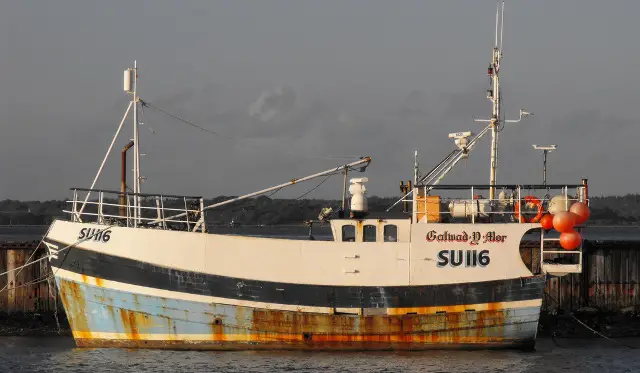The Centre for Criminal Appeals shares this latest news about the ‘Freshwater Five’. Ed
Five men protesting their innocence of an alleged drugs smuggling plot have been denied the help of the public miscarriage of justice watchdog in getting their case in front of the Court of Appeal – despite powerful new scientific evidence showing the prosecution’s version of events was impossible.
Jamie Green, Jon Beere, Daniel Payne, Scott Birtwistle and Zoran Dresic are serving a total of 104 years in prison between them after being convicted in 2011 of a conspiracy to smuggle £53m of cocaine off the coast of the Isle of Wight.
The ‘Freshwater Five’
The men have always insisted they are innocent and are represented by legal charity the Centre for Criminal Appeals. Through steadfast campaigning by their families, they have become known as the ‘Freshwater Five’.
On the prosecution’s case, four of the men sailed out in a fishing boat in May 2010 to collect bags of cocaine thrown off the back of a container ship in the English Channel.
Since no evidence of the presence of drugs was found on either vessel, the jury was presented with navigational evidence to support this claim. They were told that the men’s fishing boat had crossed behind the container ship, potentially giving them the opportunity to fish out drugs.
The prosecution’s account was impossible
However, a leading marine GPS expert has since analysed detailed navigational data that was not available at trial and concluded that information presented to the jury was wrong.
He found that, in fact, the closest the fishing boat ever got to the track of the container ship was 174m away, making the prosecution’s account impossible.
Blow from Criminal Cases Review Commission
Despite this development, the public body responsible for reviewing potential miscarriages of justice – the Criminal Cases Review Commission (CCRC) – has declined to provide the prisoners with evidence from the police files in their case, or add its backing to the clamour of calls that the case needs to be heard again in the Court of Appeal.
That decision came under scrutiny in last week’s Mail on Sunday and is the feature of a BBC Victoria Derbyshire show report aired this morning.
Concern CCRC failing miscarriages of justice victims
The CCRC’s refusal to refer the Freshwater Five’s case for a fresh hearing comes amidst increasing concerns that the body is failing victims of miscarriages of justice.
Set up with high hopes in the wake of the Birmingham Six and Guilford Four cases, the CCRC is now referring just 0.77% of potential miscarriage of justice cases to the Court of Appeal, down significantly from its historical average of 3.3% – a drop of 76% percent.
Cross-party Parliamentary group
This steep drop has spurred the creation of a new cross-party group of MPs and Lords dedicated to improving systems for preventing and overturning wrongful convictions, which met for the first time in Parliament last Wednesday.
Declining resources mean that the CCRC spends just £4 on reviewing cases for every £10 it spent a decade ago. Concerns have also been raised about the CCRC’s independence, with some arguing it too often takes the truth of claims by police officers and prosecutors for granted. The CCRC’s current Chair, Richard Foster, formerly worked as Chief Executive of the Crown Prosecution Service.
CCRC refusal to investigate suggestions of misconduct
In the Freshwater Five case, the CCRC refused to investigate suggestions of misconduct by the officers involved, despite a retired senior Serious Organised Crime Agency (SOCA) detective finding “inexplicable gaps” in surveillance records.
Instead of examining the police file in its entirety, CCRC simply held meetings with officers involved with the case. Despite repeated requests, the CCRC have refused to reveal what was discussed at the meetings.
CCRC decision “baffling and perverse”
Emily Bolton, the Freshwater Five’s lawyer, said of the CCRC’s decision:
“The CCRC’s decision to not use its powers to refer this case to the Court of Appeal for hearing is baffling and perverse. It seems like the CCRC no longer has either the resources or the independence to effectively investigate miscarriages of justice.
“In the same week that the CCRC was finalising its decision on the Freshwater Five, the innocence project where I worked in New Orleans walked Wilbert Jones out of prison after he had served 45 years for a crime he did not commit. The evidence that he was innocent was in the police files.
“Had his lawyers relied on the assertions of the police about the existence of exculpatory evidence, he would still be rotting in prison. Our charity is going to make sure that does not happen to the Freshwater Five.”
CCRC “apparently learned nothing” from Hillsborough
Suzanne Gower, the Centre for Criminal Appeals’s director, who previously worked on the Hillsborough Inquests, commented:
“To get to the bottom of a miscarriage of justice, you have to be able to look at all the police documentation around the event in question, not just bits and pieces.
“The quality of a miscarriage of justice enquiry correlates directly with how much time is spent on it, how much documentation and evidence is examined and how much boots on the ground investigation takes place.
“Hillsborough has shown the way – but the CCRC has apparently learned nothing from that enquiry.”
Image: © Used with permission of Steve Potter





